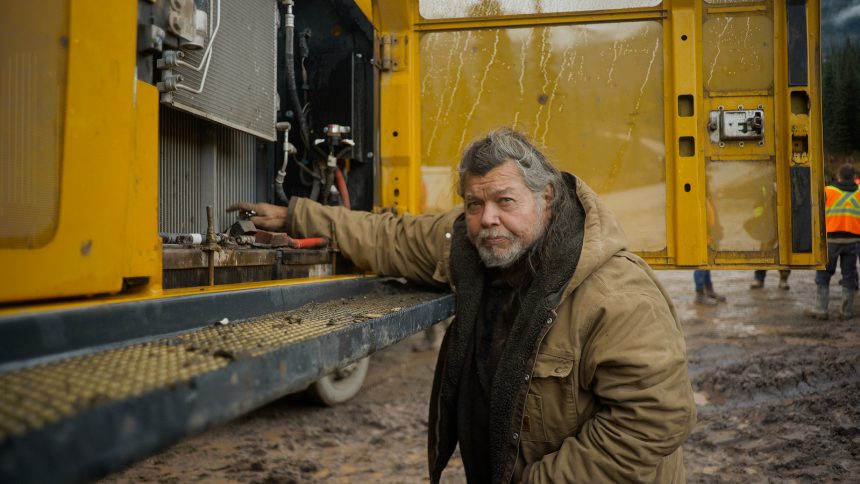In 2019, construction commenced on a natural gas pipeline that would traverse the unceded territories of the Wet’suwet’en Nation in western Canada. The land and water protectors of the Wet’suwet’en were prohibited from accessing the construction area managed by Coastal GasLink, a subsidiary of TC Energy. Despite facing resistance almost immediately, the project garnered global attention for the tribe’s adherence to traditional law. According to Wet’suwet’en law, the pipeline encroached upon their land. As no treaty was signed with Canada or Britain, the Wet’suwet’en assert that their laws still hold sway — a political stance validated by the Canadian supreme court — granting them the right to expel Coastal GasLink and its pipeline from their homeland.
In 2021, Chief Dsta’hyl, a Wet’suwet’en hereditary chief, along with a group of land and water protectors, confiscated a battery from an excavator owned by a Coastal GasLink contractor. A week later, they obstructed two roadways used by the construction crews. Subsequently, Chief Dsta’hyl was arrested for contravening a court injunction that barred the group from impeding the construction of the Coastal GasLink pipeline. In early July 2024, he was sentenced to 60 days of house arrest. The role of hereditary chiefs, like Dsta’hyl, revolves around safeguarding their tribe’s culture, land, and people, embodying a distinct legal order than the band council system — elected officials of the six bands recognized by the Canadian government. Although Coastal GasLink received consultation and approval from the Wet’suwet’en band councils, they did not seek consent from the hereditary chiefs.
Chief Dsta’hyl’s pacifistic approach to opposing the pipeline caught the eye of Amnesty International, which designated him as Canada’s inaugural prisoner of conscience, a accolade bestowed upon individuals incriminated for their politics, religion, ethnicity, and other protected statuses. Amnesty International has suggested the existence of potentially numerous prisoners of conscience across the globe, advocating for Chief Dsta’hyl’s immediate release.
Grist recently conversed with Chief Dsta’hyl at his residence in Wet’suwet’en territory about his campaign against the Coastal GasLink pipeline and his recognition as an Amnesty International prisoner of conscience. The following interview has been abridged for brevity and intelligibility.
“My English name is Adam Ganon, but my esteemed chief name is Dsta’hyl, signifying ‘in the wake of a whale’ in our language. I have been a hereditary chief in the Sun House for over four decades now. I was bestowed the name in my mid-twenties and bear substantial responsibilities to the Sun House and our clan. Once you embark on serving your nation, you persist in doing so from the moment you assume the name until you transition from this world.”
Q: You were detained three years ago outside your camp in Wet’suwet’en territory. Could you recount the incident and its location?
A: It was a cold and damp day when they apprehended me. I was not near our camp. I decided to take a drive to survey the Royal Canadian Mounted Police (RCMP) activities. Two Coastal GasLink vehicles trailed me, which didn’t bother me initially. However, they must have been on the same channel as the RCMP and informed them of my departure. As I approached a bridge, the RCMP lights illuminated, blocking my path for the arrest.
To be continued…






